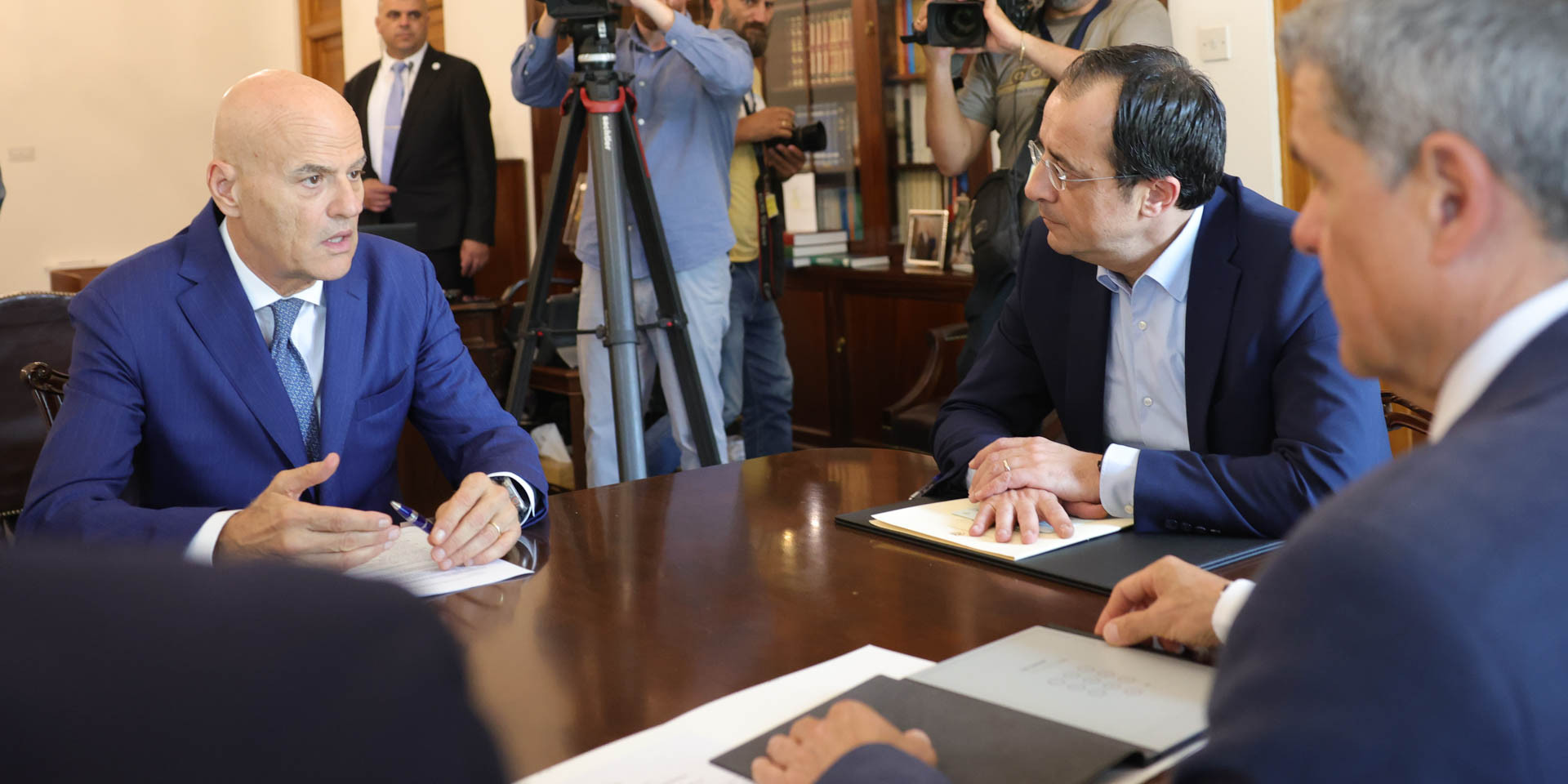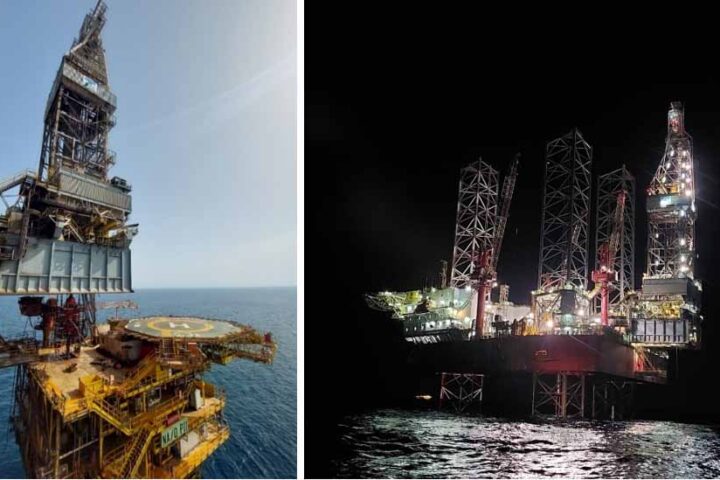The chief executive of energy company Eni said Cyprus-Israeli plans for a pipeline to move offshore natural gas to the island is “part of our discussion” with Nicosia.
The gas would be processed for electricity generation and possible exportation.
Eni CEO Claudio Descalzi said Tuesday after talks with President Nikos Christodoulides that any plan to develop gas deposits discovered off Cyprus “must have economic value.”
Descalzi said talks focused primarily on Eni’s plans to drill an additional well by the end of the year in Block 6 — one of seven areas inside Cyprus’ exclusive economic zone where the Italian company and partner Total of France hold licenses for oil and gas exploration.
“We always support the government because they asked us, we work with them, and clearly everything must have an economic value, but clearly, we are working together.
“So, it’s part of our discussion,” Descalzi said in response to an Associated Press question.
Energy Minister George Papanastasiou said talks also revolved around how quickly discovered gas deposits can be developed as part of the Cypriot-Israeli two-pronged plan.
Eni views the pipeline project in combination with a processing plant to liquefy natural gas for export by ship “favourably,” Papanastasiou said, on condition that more deposits are discovered to make the construction of such infrastructure economically viable.
He said the plan has two phases.
The first foresees a pipeline to bring Israeli and Cypriot gas to the island for electricity generation to be consumed domestically, with excess supply conveyed back to Israel via an undersea electricity cable.
The second phase foresees the construction of a plant to convert natural gas to liquid so it can be exported to Europe and elsewhere when the continent seeks to diversify its supply in the wake of Russia’s invasion of Ukraine.
Papanastasiou said authorities would meet again with Eni officials soon for a more in-depth discussion on expediting development plans.
“There will be a proposal from ENI after talking to its partners in Total, and there will be a discussion in the near future, which we will take to the next level to see how fast we can have gas in Cyprus for power generation purposes,” Papanastasiou said.
Two major international oil and gas companies have already expressed interest in the Israeli-Cypriot plans, Papanastasiou told the AP last month.
The project’s key drawing card for energy companies is its low-cost relative to other exporting methods, such as an idea for a €6 bln, 1,900-kilometer (1,180-mile) pipeline connecting east Mediterranean gas deposits directly to Europe.
That lower cost would mean companies would recover their initial investment and turn a profit much quicker.
The roughly 320-kilometre (200-mile) pipeline is estimated at €450 mln, and the liquefaction plant at €1 bln.










